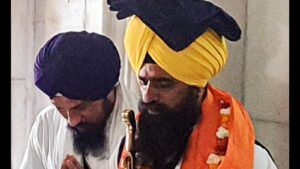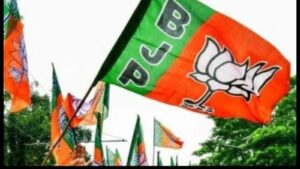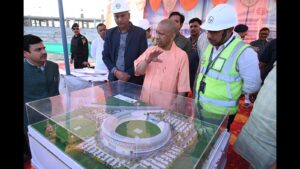No suspects in Delhi blast: ‘White’ powder probe’s main focus | Latest News Delhi

A day after a low-intensity explosion in northwest Delhi’s Prashant Vihar left a man injured and sparked a security scare, investigators have yet to identify any suspects or make any significant breakthrough in the case, investigators aware of the details in the case said.

The blast, which occurred near a public park, is the second such incident in the area in just over a month, with the first reported on October 20.
Meanwhile, preliminary forensic analysis of a “white powder” residue found at the site suggests it may be “benzoyl peroxide” – a chemical compound commonly generally used in acne treatment, but also known for its explosive potential when exposed to heat, friction, or certain other conditions.

A senior police officer confirmed the substance was initially identified as a peroxide, with further tests underway to determine its exact composition. Separately, a forensic expert examining the substance confirmed on condition of anonymity and that their primary investigation has pointed to it being “benzoyl peroxide”.
“There are other compounds and elements as well but that’s under examination” the forensic official said.
On Thursday blast site, investigators found a thick ball of white coloured powder and its residue was splattered across the road where the blast went off. The residue was lifted by forensic team and is being examined in the lab for results.
Thursday’s security scare came around a month after a similar explosion occurred on October 20 near Central Reserve Police Force School, just a block away, where a similar residue was found as well, police officials said.
Also read: ‘White powder, scooter’: What police found at Delhi blast site
AK Verma, chemistry professor at University of Delhi, said that benzoyl peroxide can be explosive when heated above 100 degree Celsius, or when mixed with other compounds.
“Peroxides are a functional group. Benzoyl peroxide is a solid white powder… Benzoyl peroxide is available with chemical suppliers for research purposes and can be easily made in the laboratory. It is commonly used for the oxidation reactions,” he said.
Investigators, however, said that despite this lead, they have yet to make significant progress in either this case or the previous explosion.
Both incidents bear similarities, with comparable white powder residues recovered from the respective sites. However, the forensic report for the October blast remains pending even after 40 days, leaving the exact connection between the two cases unclear.
“It’s not known yet whether the powder lifted from the two sites had the same composition. The results are awaited,” a senior police officer said.
According to police, Thursday’s explosion in Prashant Vihar occurred near a market and schools, prompting heightened anxiety among residents. The Delhi Police control room received a call at 11.47am on Thursday about the blast in front of Bansi Wala Sweets on PVR Road. Emergency services, including a forensic team, the bomb disposal squad, and fire and ambulance crews, were immediately dispatched.
Also read: AAP, BJP row over law and order in Delhi
“A mild explosion occurred near the wall of a small park,” a police spokesperson said in a statement. The blast injured 25-year-old Chetan Kumar, who suffered facial and ear injuries. He was treated at Baba Saheb Ambedkar Hospital and later discharged.
Investigators said that efforts to identify suspects have been hampered by the lack of CCTV footage directly covering the scene.
“Footage from nearby cameras has been reviewed, but none captured the explosion or any suspicious activity in the immediate area,” a senior police officer said. Witnesses at the scene and the injured man were also questioned but provided no useful information, the officer added.
The blast site is just a few meters from St Margaret School and within a 1km radius of four other schools, including CRPF School and Lancer’s Convent. Parents expressed growing concern about safety, given the proximity of both incidents to educational institutions.




